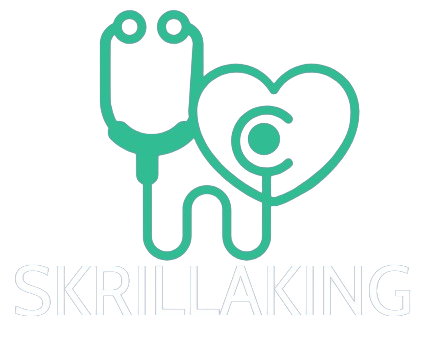As we age, we may experience a decline in both physical and mental abilities. One particular challenge related to the aging process is memory loss and dementia. With proper care and support, people who are dealing with these conditions can enjoy a high quality of life despite the aspects of aging that they are facing. In this article, we explore the available support and care options for addressing memory loss and dementia in aging.
1. What is Memory Loss and Dementia?
Memory loss and dementia are serious conditions that can have a serious negative impact on an individual’s life. Dementia is an umbrella term for a wide range of symptoms associated with a decline in the brain’s cognitive functioning. Memory loss is one of the most common signs of dementia.
Memory loss generally refers to a decline in an individual’s ability to remember important information. This can include difficulty recalling recent events and conversations, and difficulty retrieving and/or recalling information from one’s long-term memory. Memory loss can also affect the ability to process and learn new information.
Types of Dementia
- Alzheimer’s disease
- Vascular dementia
- Lewy-body dementia
- Frontotemporal dementia
It is worth noting that not all forms of dementia involve memory loss. However, memory loss is a common symptom of the majority of cases. Memory loss can be brought about not only by dementia, but also due to stroke, traumatic brain injury, alcoholism, drug misuse, and depression.
2. Understanding Supporters and Care Providers
The care provider-supporter relationship is often complex yet essential to providing effective and comprehensive care for adults with disabilities. It is critical to ensure that supporters understand the individual needs of care providers and can find ways to meet those needs.
What does a care provider do? At its most basic level, a care provider assists and supports an adult with disability with everyday activities such as personal care, meals, recreational activities, shopping, transportation, and more. They also serve as advocates for the person they are supporting, making sure their rights and needs are met in terms of:
- Respect
- Autonomy
- Empowerment
- Justice
A care provider also ensures that necessary medical, health, and safety services are provided. They may provide instructions for medications, fitness or dietary regimens, and participate in or coordinate any required recreational activities. It is essential that they possess a vast range of technical knowledge, interpersonal skills, and problem-solving abilities.
What do supporters do? Supporters act as the primary advisors to the care provider and are the voice of the individual with disabilities. Many supporters are also family members, which requires a different level of understanding and compassion that goes above and beyond the care itself. Supporters recognize and respect the needs of the individual while advocating for their rights and best interests. They may provide task assistance, financial or medical support, or act as a liaison between care providers and the individual’s family.
3. Strategies to Address Memory Loss and Dementia
Coping with memory loss and dementia is a challenge that many families face. Fortunately, there are strategies to help manage and improve mental sharpness. Here are some methods to help those with this difficult condition:
- Engage in Activities that Stimulate the Brain: Activities like crossword puzzles, board games, and books are a great way to keep the brain engaged. It is also beneficial to try a new activity or skill to give the brain a new challenge.
- Have a Routine: Daily routines help keep the brain active and focused. A consistent bedtime, habits for meals, and any other daily activity can be beneficial.
- Stay Physically Active: Exercise is key to cognitive health and can help improve brain function overall. It has also been shown to reduce stress and anxiety.
Social interaction is also important for those with memory loss or dementia. Reminiscing about old memories, playing games, and spending time with friends can all help keep the mind sharp. Creative activities such as painting, drawing, and writing can be especially stimulating and pleasurable. For those who find it difficult to socialize, pet therapy and even online video chat can be beneficial.
Psychological treatments such as cognitive behavioral therapy (CBT) can also help those with memory loss. This type of therapy can help identify triggers for certain behaviors and can teach patients coping techniques to manage them. Medication may also be prescribed to manage symptoms on a more long-term basis.
4. How to Find Support and Care for Aging Adults
Caring for an aging adult is an important responsibility. Seniors can benefit from the companionship, emotional support, and assistance offered by family members, friends, and other individuals and organizations. Here are some ideas for finding appropriate support and care:
- Reach out to family and friends. Ask family and friends to check in, provide social interaction, and help with light tasks around the house. Older adults may sometimes feel isolated, so it’s important for them to stay connected and feel supported.
- Hire a home care agency. For adults who require a more intensive level of care, consider a home care agency. Home care agencies can provide skilled nursing, light housekeeping, and transportation.
- Look into local senior centers. Most counties have a variety of senior centers that offer activities, classes, meals, and support groups for seniors. Contact your local senior center for more information.
- Research housing options. If the senior cannot stay in his or her home, consider assisted living facilities, nursing homes, and other residential care options.
By understanding the resources available and making a plan for care, you can ensure that an aging adult receives the support they need. These services and activities can help maintain seniors’ physical and mental wellbeing and allow them to remain independent for as long as possible.
5. Mental Exercise for Memory and Cognitive Health
Stay Sharp for Maximum Brain Efficiency
Our mental faculties are priceless and keeping them fit is all the more essential. Mental exercise is essential for maintaining a good memory and overall cognitive health. Here are some amazing activities to explore:
- Find yourself a way to practice mindfulness regularly. Meditation is a great way of releasing mental stress and integrating your mind. This can instantly refresh your thinkers.
- Jigsaw puzzles and crosswords are the ultimate tools for cognitive and memory sharpening. These tools are still viable and a great way to challenge yourself beyond your daily routine.
- Sudoku is another excellent game to sharpen your grey cells and get your neurons firing. Enhancing your reasoning power and understanding while having fun is a great way to train your mind.
- Card games such as Memory and Blink provide immense fun and help to keep your mind active and agile. Playing with other people provides an excellent experience of parallel thinking.
Furthermore, if you’re the kind of person who likes to work on computers, the internet is full of amazing mental-strengthening games. They provide you with endless hours of fun and help you sharpen your memory. Your brain is a muscle, make sure to use it and keep it active regularly. After all, an active brain is a healthy brain.
Happy Thinking!
As we age, memory loss and dementia become more and more common, however it does not mean that we should not strive to give our elderly loved ones the support and care they need. With enough patience, understanding and dedication, aging individuals and their family members can work together to confront the challenges of memory loss and dementia.


